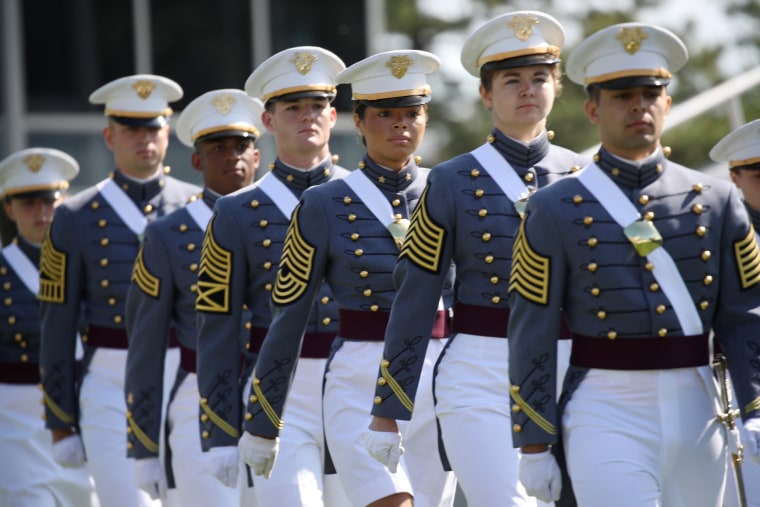WASHINGTON — The Supreme Court on Friday allowed West Point to continue to consider race in its admissions process for now, rebuffing a request made by a conservative group.
In a brief order, the court denied a request brought by Students for Fair Admissions, the same conservative group that brought the cases that led to the court’s ruling last year that ended affirmative action in higher education. That decision struck down admissions programs at Harvard and the University of North Carolina.
“The record before this Court is underdeveloped, and this order should not be construed as expressing any view on the merits of the constitutional question,” the order said.
West Point, based in New York state, provides higher education for U.S. Army cadets who go on to become officers after graduation. It is one of five such service academies, including the Naval Academy in Maryland and the Air Force Academy in Colorado.
The Supreme Court ruling included a footnote saying that it did not resolve whether service academies like West Point could continue to consider race in admissions “in light of the potentially distinct interests that military academies may present.”
Students for Fair Admissions President Edward Blum criticized the decision in a statement Friday.
“It is disappointing that the young men and women who apply to West Point for the foreseeable future will have their race used as a factor to admit or reject them,” Blum said. “Every year this case languishes in discovery, trial and appeals means that our nation’s best and brightest young men and women will be classified, sorted, and preferred based on their skin color rather than just on their abilities.”
The challengers, who have brought a similar claim against the Naval Academy, had asked the court to rule before Jan. 31, which is the deadline for people to apply to West Point for admission this year.
“Should these young Americans bear the burden of West Point’s unchecked racial discrimination? Or should West Point bear the burden of temporarily complying with the Constitution’s command of racial equality?” lawyers for Students for Fair Admissions wrote in court papers. The group says that its membership includes two “full qualified, but white” West Point applicants.
In asking the Supreme Court to immediately intervene, the challengers said that West Point’s program is inconsistent with the Supreme Court’s ruling last year. The academy awards preferences to Black, Hispanic and Native American applicants, they said in court papers.
U.S. military leaders have long stressed the importance of racial diversity in leadership positions, in part because the rank and file is itself heavily diverse.
Solicitor General Elizabeth Prelogar said in a court filing that for almost half a century “our nation’s military leaders have determined that a diverse Army officer corps is a national security imperative and that achieving that diversity requires limited consideration of race in selecting those who join the Army as cadets.”
West Point has been considering applications since August and has already made hundreds of offers, Prelogar said.
Lower courts declined to immediately prevent West Point from considering race while the litigation proceeds.

